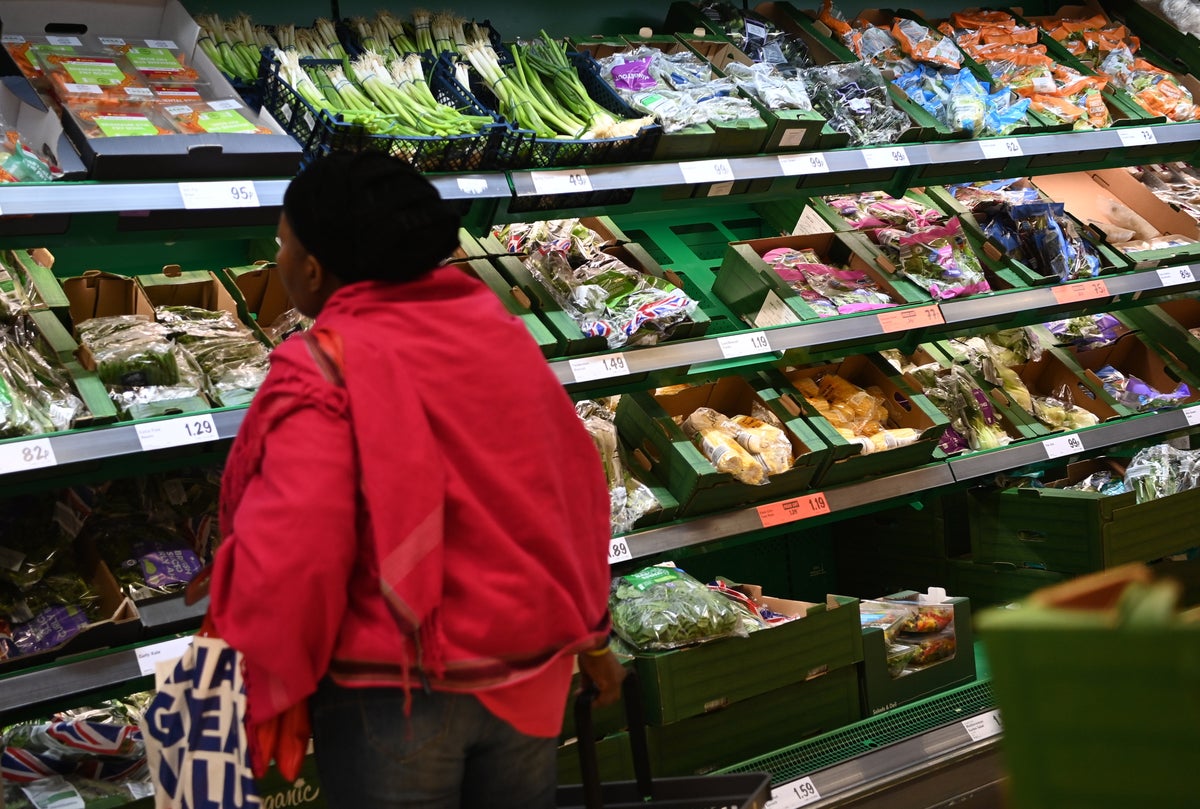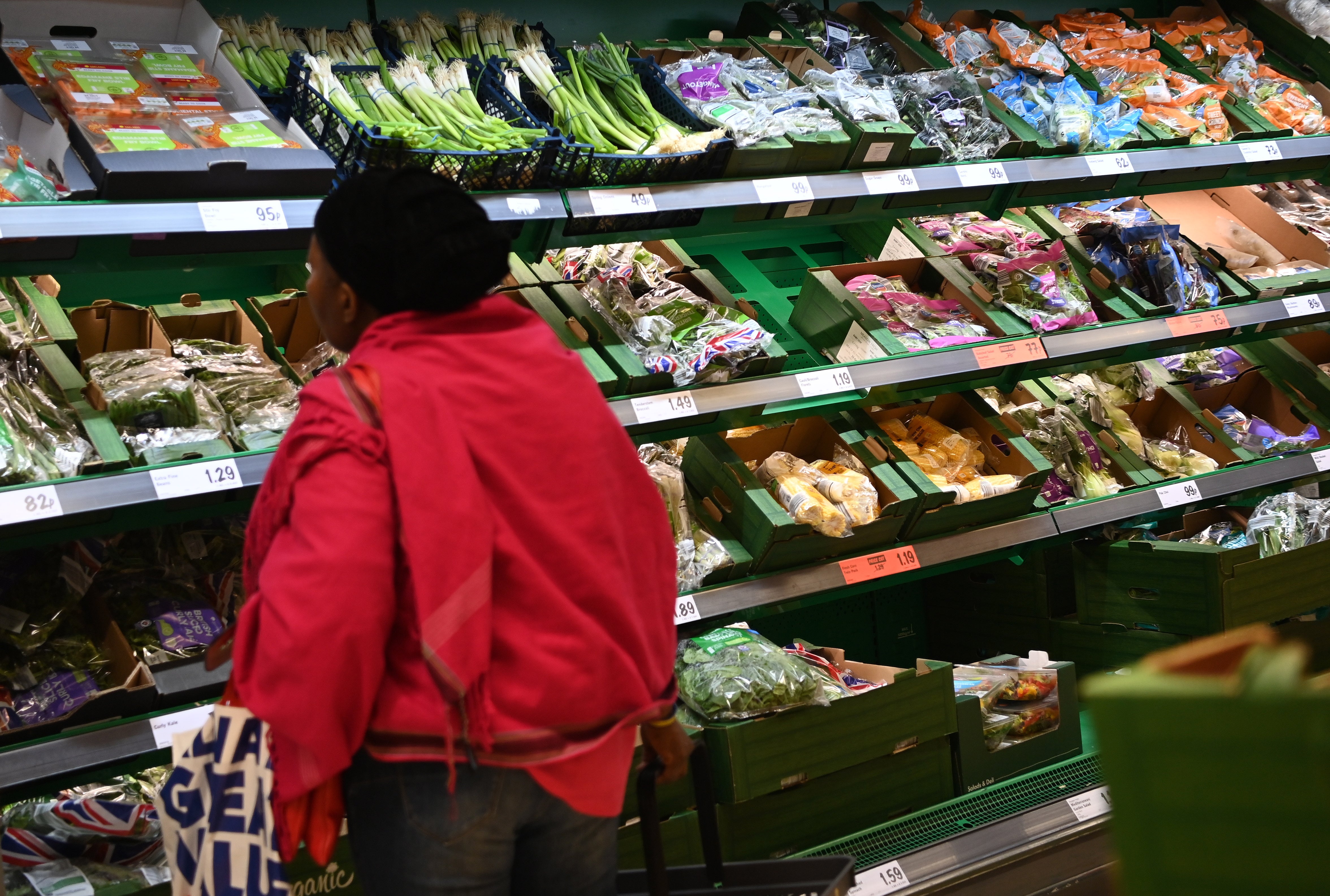
Grocery price inflation has hit another record high of 14.7 per cent, adding a potential £682 to the annual cost of a shopping basket.
Sales of supermarket own-label products have jumped by a further 10.3 per cent over the past four weeks, according to the latest monthly data from research firm Kantar.
Sales of the cheapest value ranges grew by 42 per cent as people looked to swap out items in their weekly shop with budget alternatives.
Just over a quarter of households (27 per cent) say they are struggling financially – double the figure recorded last November, the research firm said.
Fraser McKevitt, head of retail and consumer insight at Kantar, said: “Yet again, we have a new record high figure for grocery price inflation and it’s too early right now to call the top.

“Consumers face a £682 jump in their annual grocery bill if they continue to buy the same items, and just over a quarter of all households now say they’re struggling financially, which is double the proportion we recorded last November.
“Nine in 10 of this group say higher food and drink prices are a major concern, second only to energy bills, so it’s clear just how much grocery inflation is hitting people’s wallets and adding to their domestic worries.”
Consumers are also cutting back on the amount they spend on festive holidays.
Just over one in 10 households bought a pumpkin in October, but sales were down compared with last year, Kantar found.
Fewer people stocked the cupboards for Christmas in October either, preferring to wait until later in the year.
Mr McKevitt said: “This time last year two million consumers had already bought their festive Christmas pudding. We’ve seen 32 per cent fewer shoppers doing that this time around, suggesting people are not trying to spread the cost of their purchasing – at least not in October.”
Aldi was the fastest growing retailer in the latest period, increasing its sales by 22.7 per cent year on year to gain 9.2 per cent market share, while Lidl boosted sales by 21.5 per cent to take its market share to a new record of 7.2 per cent.







